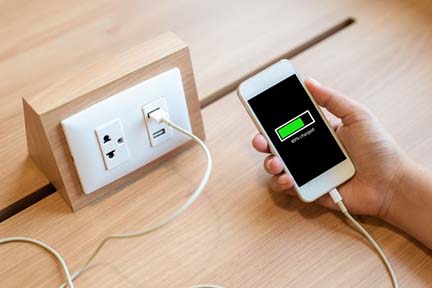
by orionontv | Apr 17, 2023 | Feature Writers, High School Sports
Written Friday April 14th at 11:15 PM

The Pontiac Phoenix have a new varsity football coach.
The Phoenix named Wendell Jefferson as their new head coach replacing Ken Wade whom stepped down at the end of the season. Jefferson was confirmed on the MHSAA website as the new football coach.
Jefferson coached the Pontiac Generals Rivals professional football team and knows the area really well. He is a 1984 graduate of Pontiac Central.
Pontiac has Kayne Donaldson at quarterback, along with Davion Hall at running back, also defensive back Debon Johnson, and linemen Bryce Brown. The Phoenix have questions with depth and program strength.
Jefferson will be tasked in trying to turn the Phoenix around. Pontiac is 5-91 since 2011 and 0-18 in the last two years.
My Thoughts
This is a very interesting hire but with a ton of local ties. Jefferson knows the city of Pontiac really well. It will be very interesting to see how he can turn around the Phoenix knowing the history. Pontiac’s schedule looks very manageable. Winning games will be very important for this team this season.
Stay tuned to OAA Now for the latest on this developing story.
Pontiac Football MHSAA page
https://www.mhsaa.com/schools/pontiac/boys/varsity/football/2023

by orionontv | Apr 17, 2023 | Regional News
| FOR IMMEDIATE RELEASE:
April 17, 2023 |
|
AG Nessel Warns Consumers to Beware of “Juice Jacking” When Using Public Charging Stations
|
|
LANSING – Michigan Attorney General Dana Nessel is warning consumers to beware of another method hackers have devised to steal their personal data.
The FBI calls it “Juice Jacking,” a cyber-theft tactic that can occur whenever an electronic device is plugged into a public charging station like those found in airports or hotel lobbies.
These public charging stations are open to anyone, including bad actors, who can secretly install malware into the stations. When unsuspecting consumers plug in their devices, the malware gains access to the device being charged. The malware can lock the device or export personal data and passwords.
Juice jacking can happen in 2 ways: by plugging a device into a public USB port with your own charging cable, or by using an infected cable provided by someone else. The FCC has even reported incidents of infected cables being given away as promotional gifts. In some cases, hackers will install and hide a skimming device inside the USB ports of the kiosk.
“This is yet another nefarious way bad actors have discovered that allows them to steal and profit from what doesn’t belong to them,” Nessel said. “Consumers typically don’t think twice before plugging into a public charging station. But knowing the risks and alternatives will allow them to protect themselves and their personal information.”
AG Nessel provided the following tips to avoid becoming a Juice Jacking victim.
- Avoid using a public USB charging station. Use an AC power outlet instead.
- Bring an AC outlet charger, car chargers, and your own USB cables with you when traveling.
- Carry a portable charger or external battery.
- Consider carrying a charging-only cable (which prevents data from sending or receiving while charging) from a trusted supplier.
- If you plug your device into a USB port and a prompt appears asking you to select “share data” or “charge only,” always select “charge only.”
“Be vigilant when charging your devices in public because you never know who or what is waiting to snatch your data when you least expect it,” Nessel said.
|
|

by orionontv | Apr 17, 2023 | Health and Wellness
|
Press Release
FOR IMMEDIATE RELEASE: April 17, 2023
CONTACT: Lynn Sutfin, 517-241-2112, Sutfinl1@michigan.gov
MDHHS commemorates Minority Health Month by
spreading awareness through community engagement
LANSING, Mich. – As part of recognizing April as Minority Health Month, the Michigan Department of Health and Human Services (MDHHS) Office of Equity and Minority Health (OEMH) is launching a series of conversations to gather statewide feedback on newly proposed Race and Ethnicity Data Collection Standards.
“Michigan must be a place where everyone can envision their future and access quality, affordable health care that meets their needs,” said Gov. Gretchen Whitmer. “During Minority Health Month, we acknowledge health disparities faced by communities of color and recommit ourselves to expanding coverage, lowering costs and ensuring every Michigander – no matter where they live or who they are – gets the medication, treatment and services they deserve. I am proud of the work the Michigan Department of Health and Human Services has done to protect and expand access to health care, and I am also grateful to the ongoing work of the Racial Disparities Task Force to face these challenges head on. Let’s keep taking action to reduce disparities and protect the health and safety of every community.”
“Minority Health Month is a time to highlight barriers impeding the health disparities and health inequity for racial and ethnic populations,” said Elizabeth Hertel, MDHHS director. “When people are provided with culturally and linguistically appropriate information, they are empowered to create healthier outcomes for themselves and their communities.”
OEMH will honor its commitment to positively impacting disparities by sponsoring social media and community events throughout the month in partnership with the Regional Health Equity Councils. These efforts will focus on obtaining public input on how to best represent racial and ethnic identities in MDHHS’ data collection, analysis and dissemination efforts. Residents, organizations and businesses are also invited to join OEMH in promoting health literacy in April under the theme of “Better Health Through Better Understanding.”
“Far-reaching impact requires that the voices of those most affected be heard and valued,” said Kimberly Reese, director of Race Equity, Diversity & Inclusion Office. “To achieve better health outcomes for racial and ethnic populations in Michigan, we must amplify efforts to improve cultural and language literacy for health care systems in marginalized communities.”
OEMH was created in 1988 and is the third oldest minority health office in the United States. Since its inception, OEMH has dedicated its efforts to assuring health equity and eliminating health disparities among Michigan’s racial and ethnic populations, including African Americans, American Indians/Alaska Natives, Arab and Chaldean Americans, Asian Americans and Pacific Islanders and Hispanics/Latinos.
These groups face disproportionate burdens of disease and health outcomes including higher mortality rates and overrepresentation in some chronic illness like diabetes and hypertension due to systemic racism, lack of culturally responsive services and other barriers to adequate and appropriate health care.
As part of its efforts to address social determinants of health and other factors that contribute to many racial and ethnic populations experiencing disparate health outcomes, OEMH supports 11 Regional Health Equity councils throughout the state. Through community-driven priority settings, each council tailors its activities on capacity building, community outreach and education. |

by orionontv | Apr 17, 2023 | Transportation
|
FOR IMMEDIATE RELEASE MEDIA CONTACT
April 17, 2023 Dan Weingarten
906-250-4809
WeingartenD@Michigan.gov
Year’s first Adopt-A-Highway pickup starts Saturday
Fast facts:
- The first Michigan Department of Transportation (MDOT) Adopt-A-Highway pickup of the year is April 22-30 for the Lower Peninsula.
- Pickups for the Upper Peninsula will be from May 6-
- Sections of highway are still available to adopt. Go to Michigan.gov/AdoptAHighway for more information.
LANSING, Mich. – In an annual rite of spring, volunteers will fan out across lower Michigan to give state highway roadsides their first cleaning, beginning Saturday as groups in the Michigan Department of Transportation (MDOT) Adopt-A-Highway (AAH) program pick up litter from April 22-30.
The first AAH pickup for the Upper Peninsula will be later, from May 6 to 14, when spring has had more time to set in for the northern part of the state.
“Our thousands of Adopt-A-Highway volunteers are dedicated to keeping roadsides in their communities clean,” said MDOT Acting Director Brad Wieferich. “They make a huge difference every year. Let’s help them stay safe while they’re out there – keep an eye out for the volunteers and drive cautiously during the pickup periods.”
The AAH program began in Michigan in 1990. Today, around 2,900 groups have adopted more than 6,000 miles of state highway. In a typical year, these volunteers collect 60,000 to 70,000 bags of trash annually, an estimated $5 million value for the state.
Volunteers pick up litter three times each year. Statewide, there will be a summer pickup from July 15 to 23 and a fall pickup from Sept. 23 to Oct. 1.
AAH groups wear high-visibility, yellow-green safety vests required by federal regulations when working within a highway right of way. MDOT provides free vests and trash bags, and arranges to haul away the trash. Volunteers include members of various civic groups, businesses and families. Crew members have to be at least 12 years old, and each group must number at least three people.
Sections of highway are still available for adoption. Groups are asked to adopt a section for at least two years. AAH signs bearing a group’s name are posted along the stretch of adopted highway. There is no fee to participate. Go to www.Michigan.gov/AdoptAHighway for more information.
Several landfills in southwestern Michigan do their part to help the AAH program. Westside Landfill in St. Joseph County, C&C Landfill in Calhoun County, Orchard Hill Landfill in Berrien County, Southeast Berrien County Landfill near Niles, and Republic Services Gembrit Circle Transfer Station in Kalamazoo have all agreed to accept trash generated by the three annual AAH pickups at no charge. In exchange, these businesses receive a sign recognizing their support. |

by orionontv | Apr 13, 2023 | Health and Wellness

FOR IMMEDIATE RELEASE: April 13, 2023
MEDIA CONTACT: Bob Wheaton, 517-241-2112, WheatonB@michigan.gov
MDHHS Children Trust Michigan seeks proposals for programs to strengthen relationships with fathers
LANSING, Mich. – The Michigan Department of Health and Human Services (MDHHS) Children Trust Michigan is looking for proposals for statewide and local programs to strengthen children’s relationship with their fathers.
Children Trust Michigan wants proposals to promote a father’s engagement with their children, nurture father-child relationships and build parental resilience.
“Children around the state will benefit from this funding to help fathers develop nurturing relationships with their children,” said Demetrius Starling, senior deputy director of the MDHHS Children’s Services Administration. “Michigan already has many strong fatherhood programs in place. We want to expand upon successful initiatives that are improving child well-being and put in place new programs. Children experience better outcomes when they have strong relationships with their fathers.”
The Direct Service Fatherhood Initiative Program funding is open to local or statewide public, private or nonprofit 501(c)(3) organizations. This is the first time that this annual Children Trust Michigan prevention funding has focused specifically on fatherhood initiatives.
This funding is available to new programs or for expanding existing programs. It will provide seed money to establish services – not for operating ongoing services. Examples could include – but are not limited to – programs such as:
- 24/7 Dad, a program that supports the growth and development of fathers as caring and compassionate people who treat themselves, others and the environment with respect and dignity.
- Inside Out Dad, a curriculum for incarcerated fathers that bridges the gap between the father and his children.
- Supporting Father Involvement, a child abuse preventive intervention program designed to enhance fathers’ positive involvement with their children.
Total available funding is $400,000 and MDHHS estimates five awards with a maximum of $80,000 and minimum of $10,000.
The state will hold a pre-application conference to discuss this funding opportunity and provide instruction on using the EGrAMS system. The pre- application conference will be Monday, April 17, at 9:30 a.m., EST, for approximately 90 minutes. The conference can be accessed at https://bit.ly/3l89Wv9.
Applicants must electronically submit applications for initial review and endorsement by a Children Trust Michigan local council by 3 p.m., May 22. Applications endorsed by local councils will be forwarded to MDHHS by June 8. The program period runs from Oct. 1, 2023, through Sept. 30, 2024.
For more information or to apply, visit the EGrAMS website and select “About EGrAMS” link in the left panel to access the “Competitive Application Instructions” training manual. The complete request for proposals can be accessed in the “Current Grants” section under the “Children Trust Michigan Direct Service” link by selecting the “DSFI-2024” grant program.
# # #









